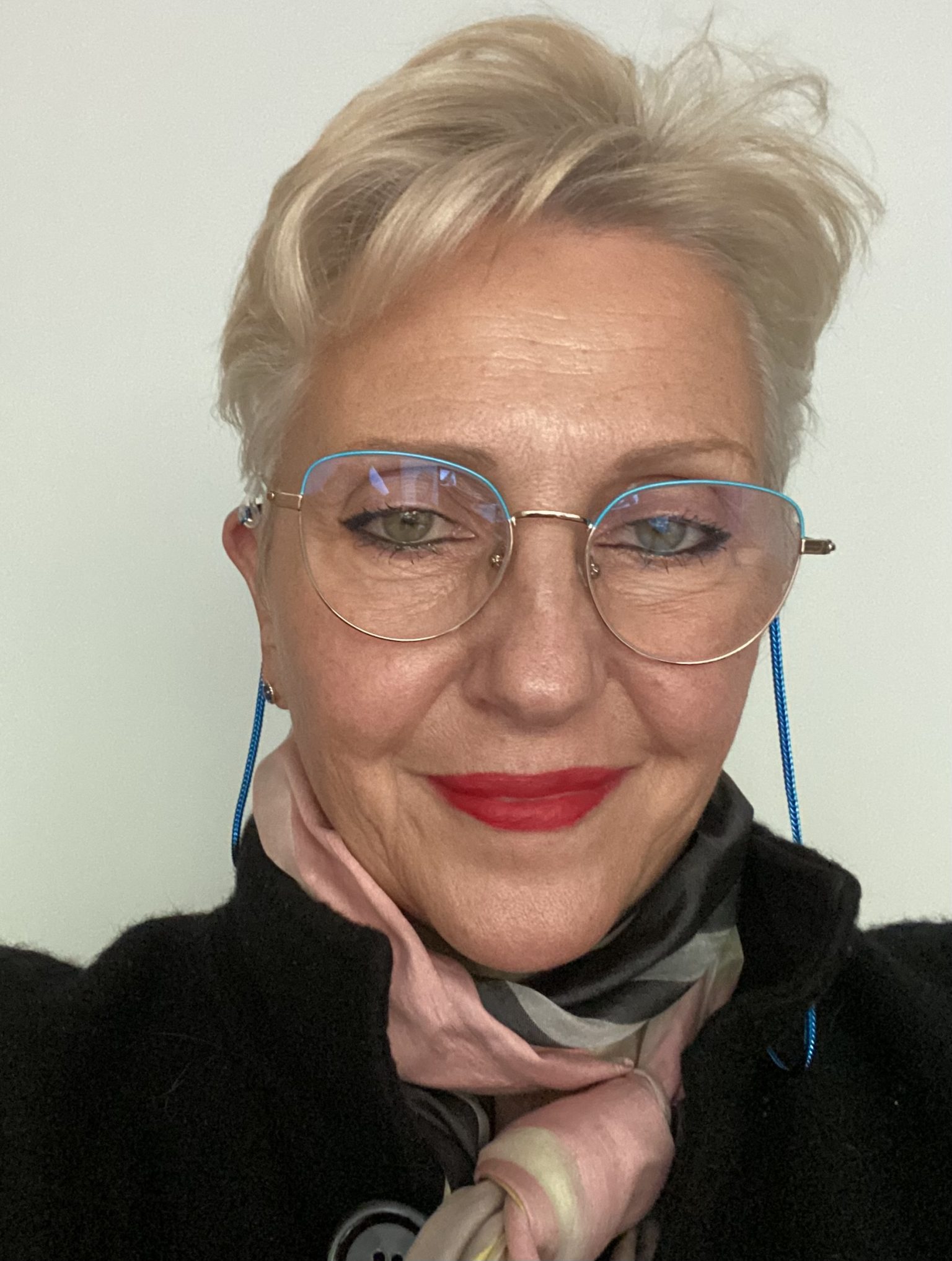Can you tell us about your background, your career to date and your personal story?
I was born in London, United Kingdom, into a traditional Polish family who were first-generation WWII refugees. As an adult, I started my career in London in public relations and advertising. However, I moved to Brussels to work for the “Common Market” (EU) and then on to North Africa, where I married, lived, and worked on and off for 18 years, with stops in Europe and other continents, before returning to Poland in 2017.
I currently reside in Sopot, on the Baltic coast. I have had an interesting career
working with International Diplomats, Financial Services, Investment Banking and Asset Management, including IFI’s, the UK Civil Service and Government, and in North Africa.
I have been self-employed as an interculturalist and coach since 2005, after graduating from Oxford Brookes University with an MA in Coaching & Mentoring Practices. I am a former Board Member of APECS (Association for Professional Executive Coaching & Supervision) as International Director, DEI&B. In my roles as an interculturalist, coach, mentor, and supervisor, I have promoted sustainability, inclusiveness and safe spaces, supporting my clients through social pressures on decision-making, by using an embodied self-awareness methodology.
Why did you decide to get into Trauma Sensitive Coaching?
Due to completely unexpected traumatic health events in the early 2000s and more recently since the Covid-19 pandemic, I decided to let go of my corporate coaching to focus on Trauma Sensitive Coaching. It has been a journey of awakening and enlightenment. It was during Covid-19 while attending online seminars and webinars, that I realised I had been living a dysregulated life for more than 20 years. What I do now is focus on supporting people who want to lead a stress-free life, and I have built my new business based on my own experiences.
What attracted you to this line of work?
Having suffered for so long with chronic pain and trauma and not realising what was happening to me inside and out – me being me, strong-willed, resilient and, based on my own experiences and recovery, I found that I had lost my passion for working with corporates as an executive coach. I wanted to work with and transform people’s lives who were suffering stress, anxiety, and trauma and support them in leading a stress-free life.
Who is your clientele?
People who are no longer in therapy, but also those wishing to have coaching and therapy together. People who are stuck, and anxious, have lived through some form of trauma, including secondary or tertiary trauma; loss, loneliness, suffering from chronic pain due to multiple surgeries, and being overwhelmed by work schedules and stress. The list is endless, and we are only just seeing the tip of the iceberg as the pandemic slows down.
How do you aim to help clients through your coaching?
By working with me and incorporating Trauma Sensitive practices into their lives, my clients will learn to let go of the past, avoid getting caught up in worries about the future, and experience much deeper connections with others and themselves, so they can live a more regulated, stress-free life.
What are the most common problems or challenges you come across when working with your clients?
Interestingly, many of my clients think that trauma relates only to war veterans and child abuse and that, therefore, they do not fit into trauma programs and don’t seek help.
What is the most fulfilling part of your job?
Meeting my clients and having that initial conversation with them. Just listening to what they are telling me; not judging. Building trust and watching their amazing transformative journey.
What’s been your biggest success?
I have a client who has had many personal challenges. She had also been to therapy, but there had been no breakthrough. During our third coaching session, something happened. It was as if everything had become crystal clear. She could see through the clouds. That evening or early next morning at 2 a.m., I received a message telling me that she had written a letter to her departed husband and that she felt such joy and happiness that she could finally talk to him again and start thinking about moving forward with her life without him.
What are your plans for the future?
My goal has always been to start a Foundation in Poland around Intergenerational Connections. The power of intergenerational ‘volunteer’ programmes and the benefits of intergenerational relationships improve attitudes, behaviours, and most importantly, quality of life and well-being for both the young and the elderly. Engaging with young people can make a real difference in the life of older people, helping them to maintain their executive function and memory, feel more energised and confident, and feel less isolated. Younger people may be more likely to volunteer regularly, be less likely to skip school and make friends outside of their age group. Through collaboration and socialisation, people of all ages can lead a more active, healthy, and engaged lifestyle, which can be enriching and beneficial to each generation.
Finally, what is your motto?
“I have never judged myself by other people’s standards. I have always expected a great deal of myself, and if I fail, I fail myself.” – Sophia Loren
Barbara StClaire-Ostwald, MA, BSc(Hons), is a trauma survivor, Master Executive Coach & Supervisor, Interculturalist and expert in Trauma Sensitive Coaching and Neuroscience. She works with individuals and groups around the world supporting them through social pressures, decision-making, discovering how to let go of the past and understanding their body-mind connection to live full and transformative stress-free lives through embodied self-awareness. For more information visit: https://barbarastc.com LinkedIn: https://www.linkedin.com/in/barbarastclaireostwald/

